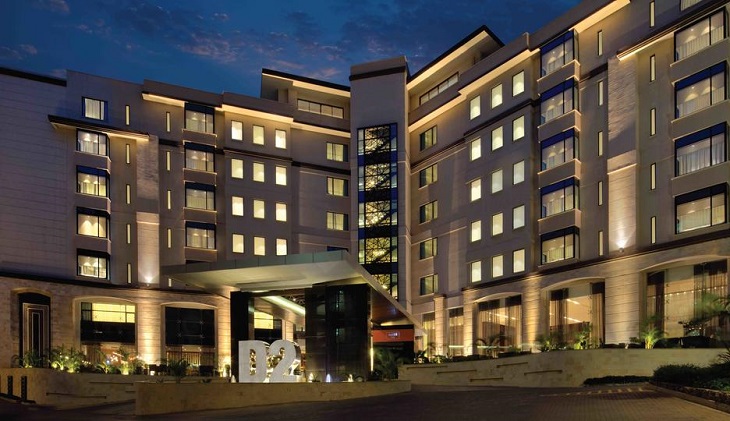There was a time when an “investor” wanted to auction the iconic 14 Riverside, a multibillion investment over an alleged debt of 5.4 billion shillings. The stories sounded crazy then.
The legal battle ensured, and the journey in and out of the courtrooms kicked off. Since then, the journey has been marred with controversy, miscalculations, and mis-justice that has not only affected the real owners of 14 Riverside but painted a dark picture for future investors.
This is how the story began: A company called Synergy wanted to purchase a block at 14 Riverside. It wanted its block to be customized with specific features.
Formal sale agreements were drawn, and signed, and payments made. Synergy pays Ksh 577 million upfront out of the agreed total of Ksh 703 million which will give them 2 blocks of prime developed property in the heart of Riverside.
After the formal sale agreements were signed and payments made, Synergy withdrew from the agreement and demanded a refund of the cash that had been paid and more. It was suspicious because that is not what business is done. Out of the blues, they wanted out.
Synergy then rushed to the Directorate of Criminal Investigation (DCI) to accuse Cape Holding of “obtaining money by pretense even though Cape Holdings had not refused to pay. Cape Holdings was willing to pay but Synergy was asking for crazy amounts that were contrary to the agreements that had been signed.
What is more, when one retracts on a sale agreement, there are terms and conditions, especially on the “non-refundable deposit”. Interestingly, Synergy wanted all and more. As a result of the back and forth, Cape Holdings ran behind schedule in terms of project delays hence unprecedented losses.
It was obvious that Synergy was using delaying tactics to frustrate 14 Riverside and maybe demand much more by exploiting loopholes in the law. The matter proceeded to Arbitration in 2012. This was even though Cape Holdings wanted the matter settled amicably outside the court.
This kicked off one of the longest arbitrations in this country. The arbitrator, James Ochieng Oduol, delivered the first shock. He unjustly awarded a sum of 1.7 billion shillings in 2015 based on terms that are not even within the Arbitration Act. The amount ballooned to 5.4 billion shillings compounded at 18 percent. This is crazy.
Now, the Arbitrator awarded the damages in interest, opportunity cost, and foreign exchange. Now, where on earth do damages go beyond the amount agreed for the purchase in the first place? The agreement was in Kenyan currency, what the hell was the foreign exchange loss for?
The arbitrator seems to have ignored simple rules of interest computation that legally, have to be limited to 6 years and capped at the principal amount. What was awarded was an open rip-off. All concerns by Cape Holdings were rejected by the Arbitrator.
This blatantly unjust arbitration ruling was fairly set aside by the High Court and thereafter dismissed by the Court of Appeal. Then Synergy went to the Supreme Court directed the matter back to the Court of Appeal and reinstated the flawed arbitration award with a different bench.
To help put the matter to rest, Cape Holdings stated in several applications that it is not against paying Synergy but wanted an application of a payment formula.
For instance, how did the arbitrator arrive at an 18% compound interest rate? Which law was used to arrive at this crazy figure? Justice C. Kariuki in March 2016 found that the arbitrator had exceeded their mandate and set aside the entire award.
Imagine, the amount that was to be refunded was Ksh 577 million, then the Arbitrator put it at Ksh 1.7 billion, and now the amount is Ksh 5.4 billion. But even with the amount, Synergy seems to be not interested in the money and just wants the whole property to be sold.
At the same time, I&M Bank has come out guns blazing to block the sale of the 14 Riverside complex by Synergy
Industrial Credit Limited argues that the property is charged to the lender over a loan of close to Ksh 3 billion, as a debenture. The bank is alarmed at how an active debenture could be disregarded by the Court in such a sensitive property matter.
The latest twist is the property’s administrators who have amplified the lender’s queries, disputing the Court’s ruling on the property where a debenture is involved, as the rest of the complex that is not in contention was wholly financed by bank loans.
So the property’s administrators returned to court and obtained an order blocking Synergy from interfering with the management of the complex, stating that Synergy had threatened to sell the entire property, yet the administrator has interests in several blocks. Again, what is going on with the legal system? Too many twists and turns all at once over KSh 577 million that somehow gave birth to KSh 5.4 billion.
Well, the matter is back in Court, and all parties have been instructed that the matter comes up for hearing on October 2, 2024. It will be interesting to understand from Synergy’s lawyers how they can defend a KSh 5.4 billion award – do those two blocks cost this much at the moment? What influences such judicial decisions?
Read Also: Court of Appeal Stops Sale of 14 Riverside Pending Hearing

